The HUPO Early Career Researcher (ECR) Committee was founded in 2015 and has since actively and tirelessly promoted the transmission of HUPO ideals to the next generation of proteomic leaders, who are involved in many of the varied HUPO initiatives and activities. Mentoring represents the strongest link between generations of scientists, which is why the ECR is pleased to present a variety of awards and activities in conjunction with HUPO’s Annual World Congress.
We are excited to announce the 10th ECR Manuscript Competition at HUPO2024 to select the “Proteomics Highlight of the Year”. The manuscript competition is a unique opportunity for early career researchers to gain visibility in the proteomics community, as it serves as a platform to highlight the important contributions that postdoctoral fellows, young clinicians, and junior faculty members make to the proteomics field. Three finalists were selected to present their manuscripts published during the 2023 and 2024 calendar years in a dedicated plenary session at HUPO2024. An expert committee will evaluate the oral presentations to determine the “Proteomics Highlight of the Year”. The first-place winner and two runner-ups of this competition will be announced in the closing ceremony on Wednesday at HUPO2024 and receive a cash prize.
Session Information
Monday, October 21st, 2024
5:45 PM - 6:30 PM
Plenary Hall
Chairs:
Charlotte Hutchings (University of Cambridge, UK)
Andreas Hober (AstraZeneca, Sweden)
Presentations:
Glycoproteomic landscape and structural dynamics of TIM family immune checkpoints enabled by mucinase SmE
Stacy Malaker, Department of Chemistry, Yale University
The proteomic landscape of synaptic diversity across brain regions and cell types
Marc van Oostrum, University of Basel, Switzerland
Revealing proteome-level functional redundancy in human gut microbiome using ultra-deep metaproteomics
Leyuan Li, National Center for Protein Sciences, Beijing, China

Sponsored by Expert Review of Proteomics:
Dr Stacy Malaker
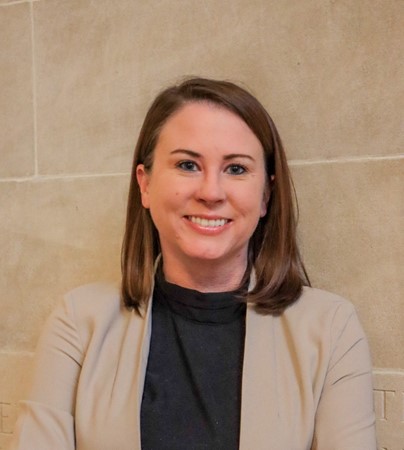
Dr Malaker is an Assistant Professor in the Department of Chemistry at Yale University. Her laboratory is focused on establishing methods and technology to study mucins, a class of densely O-glycosylated extracellular proteins, by mass spectrometry. Additionally, the laboratory studies mucins in a biological context, since these proteins play integral, yet poorly understood, roles in numerous diseases. Prior to her appointment at Yale, she received her B.S. from the University of Michigan in Biochemistry and Anthropology-Zoology. Dr. Malaker then went on to receive her PhD in Chemistry from the University of Virginia in the laboratory of Professor Donald Hunt. She continued to investigate the role of aberrant glycosylation in cancer as an NIH postdoctoral fellow in Professor Carolyn Bertozzi’s laboratory at Stanford University before starting at Yale in 2021.
Dr Marc van Oostrum

Dr Marc van Oostrum is currently an SNSF Ambizione Junior Group Leader in Prof. Peter Scheiffele’s laboratory at the Biozentrum of the University of Basel. His research focuses on employing spatial proteomics to unravel the molecular organization and diversity of neuronal synapses. Marc completed his Master’s in Biochemistry at ETH Zürich, where he conducted his thesis research in Prof. Paola Picotti’s lab. He pursued his PhD at the Institute for Molecular Systems Biology at ETH Zürich under Prof. Bernd Wollscheid, specializing in cell surface and spatial proteomics. His postdoctoral work, carried out in Prof. Erin Schuman’s lab at the Max Planck Institute for Brain Research in Frankfurt am Main, explored the molecular diversity of synapses.
Dr Leyuan Li
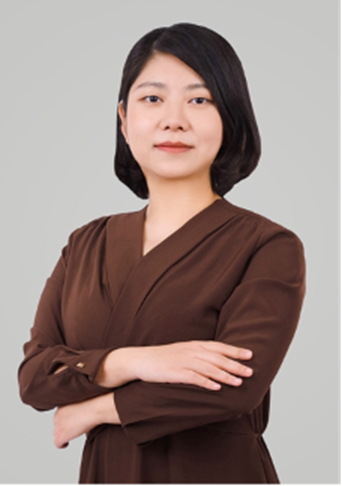
Dr Leyuan Li is currently a Junior Principal Investigator at the National Center for Protein Sciences (Beijing), also known as the Phoenix Center. From 2016 to 2022, she was a postdoctoral fellow and research associate at Dr. Daniel Figeys’s lab at the University of Ottawa. Her training included developing in vitro culturing techniques and automating metaproteomics for rapidly assessing personalized microbiome drug responses. In 2022, she started-up the Proteome-level Microbial Systems Ecology (ProMiSE) Lab at the Phoenix Center. Her new endeavor focuses on using metaproteomics and other advanced techniques to unravel the complexities of our internal microbial ecology. Her research aims to provide deeper insights into the ecology and functions of microbial communities within the human body for future personalized interventions.
The HUPO Early Career Researcher (ECR) Initiative in collaboration with the Human Proteome Project (HPP) has organized a 3-minute thesis competition where candidates will present their research within 3 minutes using one static slide and in a form that can be understood by a general audience. Thirteen candidates have been pre-selected for the final competition, to be held in a parallel session at HUPO2024 and you are invited to participate. An expert committee will evaluate the presentations to determine the winner and two runner ups. The first-place winner and two runner-ups will be announced in the closing ceremony on Wednesday at HUPO2024 and will receive a cash prize. You won’t want to miss this action!
Session Information
Monday, October 21, 2024
3:15 PM - 4:20 PM
Room 3-4
Chairs:
Isabell Bludau (University Hospital Heidelberg, Germany)
Paula Burton (Mass Dynamics, Australia)

This session is sponsored by:



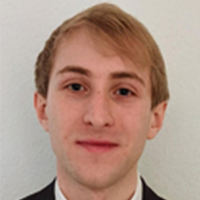
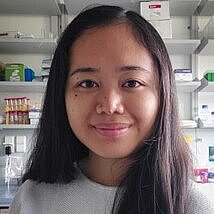
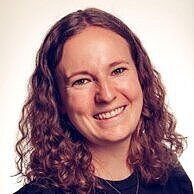


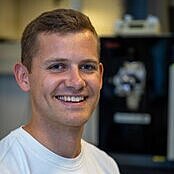
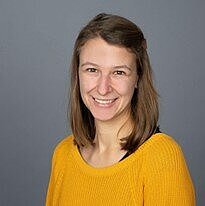
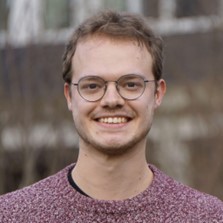


All graduate students (Master’s and PhD), as well as postdocs, were invited to participate in the HUPO2024 poster competition. Fifteen finalists in each trainee category (students and postdocs) have been pre-selected based on the quality, novelty, and potential impact of submitted abstracts for the next phase of the competition. The finalists will be visited by evaluators during the poster sessions at HUPO2024 to ultimately select a winner and two runner-ups for each category (students and postdocs). Posters of the finalists will be indicated in the poster hall, so do not miss to check out their posters!The first-place winner and two runner-ups will be announced in the closing ceremony and will receive a cash prize.
Meet our finalists
Students
- Alicia-Sophie Schebesta (Max Planck Institute of Biochemistry, Germany)
P-II-0670: Plasma proteome profiling reveals immunological dynamics in a longitudinal yellow FeverVaccination cohort
- Julian Muller (TU Munich, Germany)
P-III-0811: PTMNavigator: interactive visualization of differentially regulated post-translational modifications in cellular signaling pathways
- Vivien Wiltzsch (Fraunhofer Institute for Cell Therapy and Immunology, Germany)
P-II-0555: Multi-omics profiling of bone regeneration in diabetes reveals association of increased mast cell activity with healing impairment
- Alireza Nameni (VIB-UGhent, Belgium)
P-II-0481: Enhancing peptide-spectrum match identification: leveraging mokapot with nonlinear machine learning algorithms to increase PSMs, with consideration for false positives
- Maximilian Zwiebel (MPI of Biochemistry, Germany)
P-II-0558: Spatially resolved proteogenomics on human melanoma samples reveals evolutionary trajectories in tumor progression
- Adele Nel (University of Pretoria, South Africa)
P-II-0641: Comparative proteomic analysis of breast cancer and normal tissues with deep plasma profiling using the Mag-Net™ workflow
- Pinar Altiner (Institute of Pharmacology and Structural Biology (IPBS), France)
P-III-0764: Evaluating Phospho-peptides quantification across various acquisition methods and bioinformatic tools: novel standards and their utility in algorithm development
- Nicolai Bjødstrup Palstrøm (Odense University Hospital, Denmark)
P-II-0649: Predicting abdominal aortic aneurysms by combining mass spectrometry-based proteomics with clinical data
- Yan Zhou (Westlake University, China)
P-II-0723: Proteomic and gene panel-based profiling of medullary thyroid cancer for prognosis prediction
- Sophia Steigerwald (Max Planck Institute of Biochemistry, Germany)
P-II-0687: Single Cell Deep Visual Proteomics (scDVP) of human hepatocytes in alpha-1 antitrypsin deficiency
- Amy George (Newcastle University, UK)
P-III-0856: Comprehensive characterisation of CDK4/6 inhibitor trilaciclib in acute myeloid Leukaemia using proteomics approaches
- Aigerim Kassym (Jena University Hospital, Germany)
P-I-0357: Streamlined extraction of proteins from clinical Trizol samples via aggregate capture on magnetic beads
- Tilman Werner (University Medical Center Freiburg, Germany)
P-II-0704: Proteomic profiling of IDH-wildtype glioblastoma reveals prognostic subtypes with matching abundances of semi-specific peptides in serum
- Johannes P. Zimmermann (University of Würzburg, Germany)
P-I-0053: Quantitative phosphoproteomics identifies filamin C as a signaling hub of MAP kinases in skeletal muscle cells during acute mechanical stress
- Jan Simonik (Masaryk University, Czech Republic)
P-II-0679: Transmembrane glycoprotein GPNMB is a candidate predictive biomarker and potentially a therapeutic target in metastatic renal cell carcinoma
- Lucas Rodrigues-Ribeiro (National Institute of Science and Technology in Nanobiopharmaceutics, Brazil)
P-III-1071: Proteomic insights into MrgD receptor deficiency: motor hyperactive- and compulsive-like phenotype, and synaptic dysfunction in the nigrostriatal pathway
- Melissa S. Vorster (Stellenbosch University, South Africa)
P-III-0842: Metadata matters: enhancing TBI proteomics
Postdocs
- Vishnu Mohan (Weizmann Insitute of Science, Israel)
P-II-0626: Proteomic mapping of spatiotemporal dynamics in metastatic colorectal cancer
- Jonas P. Becker (German Cancer Research Center, Germany)
P-III-1084: Combining FAIMS-DIA and targeted immunopeptidomics to enhance neoepitope discovery
- Magdalena Kuras (Lund University, Sweden)
P-I-0367: Proteomic profiling of preeclampsia
- Heather Murray (The University of Newcastle, Oceania)
P-II-0540: Proteogenomic profiling to identify therapeutic targets for acute myeloid leukaemia
- Thierry M. Nordmann (Max Planck Institute of Biochemistry, Germany)
P-II-0644: A proteomic skin disease atlas for accurate and rapid AI-driven clinical decision making
- Matthew The (TU Munich, Germany)
P-II-0689: An end-to-end (phospho)proteomics data analysis platform for precision oncology of 1000 prospective pan-cancer patients
- Jan N. Hansen (Stanford University, USA)
P-III-0941: Spatiotemporal dissection of protein localization to human primary cilia
- Enes Ugur (Max Planck Institute of Biochemistry, Germany)
P-II-0552: Beyond current multi-modal analyses of single cells: high-sensitivity mass spectrometry unravels protein dynamics in stem cell
- Hsiang-En Hsu (Academia Sinica, Taiwan)
P-I-0339: Uncovering H. Pylori associated and independent Gastric cancer signature by tissue phosphoproteomic analysis
- Anna Pagotto (ETH Zurich, Zurich)
P-II-0578: Novel, specific protein structural biomarkers for Alzheimer's disease and dementia with Lewy bodies
- Malte Sielaff (University Medical Center of the Johannes Gutenberg-University Mainz, Germany)
P-II-0609: Leveraging LC-MS-based proteomics for improved wheat breeding: unveiling genetic and environmental factors on the expression
- Tristan Cardon (INSERM U1192 Protéomique, Réponse Inflammatoire et Spectrométrie de Masse (PRISM), France)
P-III-0924: Diving into the hidden world of AltProts: unraveling functions and interactions
- Rebecca Herzog (Medical University of Vienna, Austria)
P-III-1034: Cross-Omics Analysis of Proteome, Metabolome, and Transcriptome Dynamics during Peritoneal Dialysis
- Fabian Frommelt (CeMM, Austria)
P-III-0880: Deep Interactome Profiling MS (DIP-MS), a novel interaction proteomics method for the deconvolution of immunoprecipitated protein complexes
- Yaoting Sun (Westlake University, China)
P-I-0375: Mitochondrial Proteomic Characterization of Thyroid Oncocytic Tumors: Diagnostic Potential of IDH2 as a Biomarker
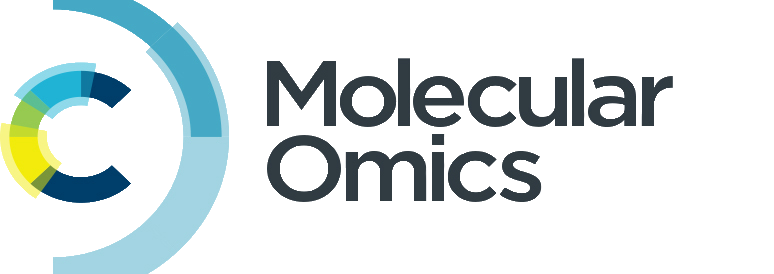
Sponsored by Molecular Omics:
The HUPO Early Career Researcher (ECR) Committee launched a new award to recognize rising stars and leaders in the field of proteomics. This career achievement award is designed to recognize early career trainees who have had an exceptional impact on the proteomics field and community. This impact can take the shape of publications, patents obtained, development of a commercial product, establishment of a course, training program, workshop or any other contributions or service to the field of proteomics.
Meet our Rising Star
Lindsay Pino (Talus Bio, USA)
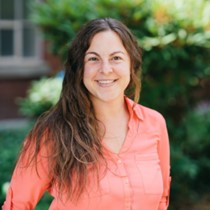
Lindsay K. Pino, PhD is co-founder and Chief Technology Officer of Talus Bio, where she is applying mass spectrometry proteomics to small molecule drug discovery. Dr. Pino earned her PhD in Genome Sciences from the University of Washington, Seattle, under the mentorship of Drs. Michael J. MacCoss and William S. Noble. She leads the development of Talus Bio’s mass spectrometry proteomics-based screening platform, guiding and coordinating scientific efforts across automated proteomics sample preparation and high-throughput mass spectrometry data acquisition and analysis. In addition to her research and leadership roles, she is an active member of several professional organizations, including the American Society for Mass Spectrometry (ASMS), the Human Proteome Organization (HUPO), and US HUPO. Dr. Pino is passionate about community building and mentorship, serving as an organizer for numerous workshops for proteomics, professional skills, and entrepreneurship. When she's not working, she enjoys bringing her son to the zoo, reading with a cup of coffee, and running 5ks.
Three exciting mentoring sessions will be hosted by the HUPO ECR Committee during HUPO 2024 World Congress. These will provide a forum for mentors and mentees to discuss topics relevant to several areas of building a career.
Mentoring Session 1 - Career Session
Sunday, October 20, 2024, 2:15 PM - 3:45 PM
Room 3-4
Chairs:
Christian Moritz (University Hospital of Saint-Étienne, France)
Jessica Del Castillo (Sanquin Research/Utrecht University, Netherlands)
Speakers:
- Christoph Krisp (Proteomics Applications Development Specialist, Bruker Daltonics, Germany)
- Maurine Fucito (Application Specialist, Evosep, Denmark)
- Uli Ohmayer (Co-founder and Head of Mass Spectrometry, NEOSphere, Germany)
- John Yates III (Editor in Chief; Scripps Research, USA)
Mentoring Session 2 - Mental Health: Building resilience to manage work and job search stress
Tuesday, October 22, 2024, 3:15 PM - 4:20 PM
Room 3-4
Chairs:
Martha Ingola (Ruhr University Bochum, Germany)
Ireshyn Govender (Senior Scientist, Council for Scientific and Industrial Research, South Africa)
Speakers:
- Stuart Cordwell (School of Life and Environmental Sciences, University of Sydney, Australia)
- Jennifer Geddes-McAlister (Molecular and Cellular Biology Department, University of Guelph, Canada)
- Adriana Franco Paes Leme (Brazilian Biosciences National Laboratory, LNBio, CNPEM, Brazil)
Mentoring Session 3 - Mastering Mentorship: Navigating Conflicts and Personalities
Wednesday, October 23, 2024, 3:00 PM - 4:05 PM
Room 3-4
Chairs:
Livia Rosa Fernandes (Macquarie Medical School, Australia)
Daniel Garama (Hudson Institute of Medical Research, Australia)
Speakers:
- Blandine Chazarin (PRISM, Inserm U1192, University of Lille, France)
- Chiara Francavilla (University of Manchester, UK)
- Parag Mallick (Department of Radiology, Stanford University, USA and Nautilus Biotechnology, USA)
Sunday, October 20, 2024
7:30 PM - 10:30 PM
Boat tour on Elbe river
The ECR Networking Night is an entertaining evening for early career researchers from all over the world to meet and mingle. This event will be a fantastic opportunity for early career researchers to network with peers and mentors from all over the world. And senior researchers, you may just find the next superstar to hire! Don’t miss out, book your ticket now.
Visit the HUPO ECR Booth in the Exhibit Hall at the HUPO 2024 World Congress
Keep an eye out for our logo and drop by our booth at the HUPO 2024 World Congress in Dresden! This will be a great opportunity to learn about our initiatives, congress activities – or joining our group – we’d love to meet and chat with you!
